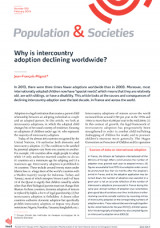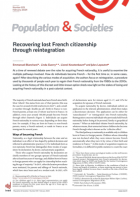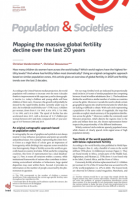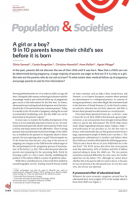
Why is intercountry adoption declining worldwide?
Population and Societies
n° 519, February 2015
In 2013, there were three times fewer adoptions worldwide than in 2003. Moreover, most internationally adopted children now have “special needs”, which means that they are relatively old, are with siblings, or have a disability. This article looks at the causes and consequences of declining intercountry adoption over the last decade, in France and across the world.
In the early 2000s there were around 40,000 intercountry child adoptions worldwide, most of them concentrated in a few countries of origin (China and Russia) and a handful of receiving countries (headed by the United States). Between 2004 and 2013, the number fell by two-thirds in France and throughout the world. The shortage of adoptable children is due to a decline in the number of orphaned or abandoned children and an increase in domestic adoptions in countries of origin, but also to a range of political measures to eradicate child trafficking through stricter controls on intercountry adoption. Most of the children available for international adoption now have “special needs”.








